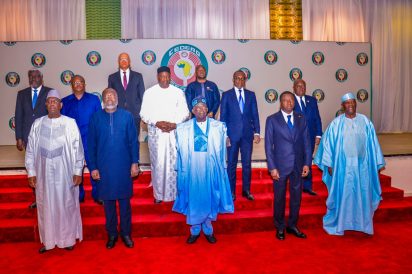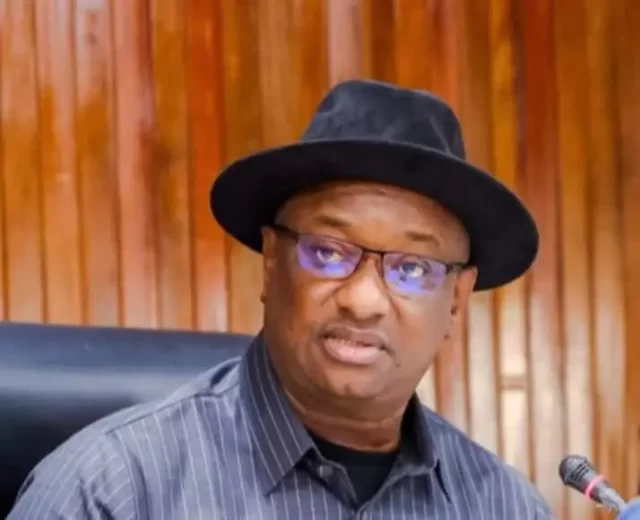By Vitus Ozoke, PhD
We can all agree, I hope, that with the exception of a few African nations, the likes of Mauritius, Botswana, and Cape Verde, western Jeffersonian democracy has all but completely derailed in Africa. A major conceptual mistake we keep making in Africa is the false equation of civilian government to democracy. It is a fallacy born out of a misconception. And it is a misconception that was born and nurtured during the first wave of military interventions in African politics in the late sixties after the achievement of post-colonial self-rule in many African nations and the fratricidal struggles for power by tribal African nationalists that followed. That misconception was further reinforced and became baked-in in the succeeding decades of the seventies, eighties, and nineties, when many African states went through cycles of intermittent military coups and martial rules.
The truth, however, is that military rule is not the conceptual opposite of democracy, neither is civilian rule the conceptual synonym for democracy. The all simple and banal Lincolnian definition of democracy as the government of the people by the people and for the people does not preclude a patriotic and popular military government. A military government that rescues the people from the stranglehold of corrupt civilian autocrats meets the Lincolnian definitional triad of government of, by, and for the people. Recent military coups, and the resultant military governments, in Niger Republic, Burkina Faso, and elsewhere across Africa, which unseated corrupt civilian regimes, cut off the intercontinental pipelines through which Africa’s natural resources are stolen and siphoned from Africa to France and other imperial shores, thereby saving African resources for the benefit and development of African people, meet all the definitional elements and essence of Lincolnian democracy.
Therefore, the theory that treats elections as an invariable absolute and cardinal element of democracy is a seriously flawed and fraudulent theory. The British do not elect their queens and kings, yet no institution in modern England commands the love and loyalty of the Brits more than the monarchical House of Windsor. There is no institution more British, in history, theory, and practice, than the British monarchy. You did not have to send Brits to the polls to know that a healthy majority of them loved and supported their late queen, or that the same healthy majority of Brits love and support their new and reigning king. It is that popular approval, which can be gauged either through the count of secret ballots or the observation of open traffic of millions of citizens lining up the streets, in rain and heat, and waiving their national flags as they chorus God Save the Queen (or King), that constitute the real essence of election and democracy.
The problem with a conceptually invariant democracy when applied to Africa is the cringey absurdity of its situational paradox. Perhaps, there can be no better and clearer example of the situational irony and paradox of a conceptually invariant democracy than having Bola Tinubu of Nigeria as ECOWAS leader and champion of democracy at this critically pivotal time in Africa. History cannot have any meaner sense of humor. The military coup in Niger Republic and the centering of democracy as the essential gravamen of the ensuing crisis, barely three weeks after Bola Tinubu became the chairman of ECOWAS, is not an ordinary coincidence; it is a coincidence of karmic significance. How was history able to cobble up such a paradox if not to provoke a rethink and reimagining of African democracy as an overrated and intellectually fraudulent construct? Here is a man who, from available ton of credible and verifiable evidence, clearly lost the February presidential election in his country, an election he was not even qualified to contest in the first place. This is a man who orchestrated the worst forms of electoral coup Africa has ever seen or known. This is a man who traffics in deadly ethnic violence, harassment, and voter intimidation and suppression to win votes. That is the poster image of democracy in West Africa. Paradox on steroids!
Look, Africa must come to terms with the realities of its internal dynamics. Jeffersonian democracy does not seem to factor in Africa’s unique experiences and realities. Africa is replete with corrupt strong men – and women – but not strong institutions. In the absence of strong institutions, you cannot practice Jeffersonian democracy in its broadest and unqueried conceptual purity. Jeffersonian electoral democracy does not thrive in a society and system that lacks the guardrails of rule of law. How can you have electoral democracy in a society where institutions are not strong enough to hold criminally corrupt and election-rigging politicians accountable? Also, crippling poverty and electoral democracy cannot coexist, as stomach infrastructure, to borrow a Nigerian colloquialism, is the direct antithesis of democracy.
There is no democracy in a country where people vote with their stomach and not their head. Cash-n-carry election is no democracy. Time has come for Africa to consciously reimagine and reconceptualize its own democracy consistent with the pragmatism of its unique realities. We can quibble and squabble over the democratic bona-fide of military coups, but we must be willing to admit a common baseline of fact: a military coup by a brigade of African patriots who wrest power from corrupt African politicians and puppets of imperial west, cut off corroded spigots that have siphoned African resource wealth to France and other neocolonial central banks, and use African wealth to benefit and develop Africa and Africans, is closer to the essence of Lincolnian conception of democracy.
To sum it up, if democracy is government of the people by the people and for the people, a popular, patriotic, and benevolent military government can be democratic. Contrariwise, there is nothing remotely democratic about a rigged civilian election that inaugurates a clueless, sadistic pain-giver. So, rather than ship off young African men and women to go kill or be killed by other young African men and women in Niger, all in the bogus pretext of saving and preserving democracy in Africa, ECOWAS may want to first conduct a referendum in Niger to feel out what Nigeriens think about their military junta vis-a-vis their past civilian governments. And I daresay that it should not just be in Niger, this referendum should be held in every African nation. I will bet my last penny that if such a referendum is held, from Bola Tinubu’s Nigeria to Paul Biya’s Cameroon, from Yoweri Museveni’s Uganda to Alassane Ouattara’s Ivory Coast – and other nations in between – the people will come down massively in favor of military democracy. That is how out of touch Africa’s so-called democracy has become in the hands of western agents who parade as civilian leaders. It is high time we reimagined and reconceptualized African democracy with the goal of aligning it with Africa’s unique realities.
Dr. Vitus Ozoke is a lawyer, human rights activist, and public commentator based in the United States.
























